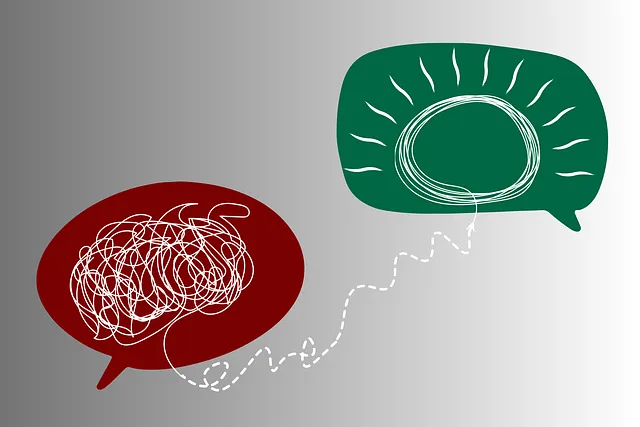Lafayette Kaiser Permanente's commitment to diverse and culturally sensitive mental healthcare ensures equitable access to effective services for all communities. Their inclusive environment, staffed by a multicultural workforce, allows tailored care reflecting individual patient identities and experiences. Through proactive training in cultural competency, risk management planning, and continuous learning, their providers enhance communication, build trust, and empower patients through holistic wellness approaches, such as wellness journaling and coaching. These strategies create supportive spaces where individuals can openly discuss mental health without barriers, fostering better outcomes for diverse client backgrounds.
Cultural sensitivity is a cornerstone of effective mental healthcare, ensuring diverse populations receive tailored, compassionate support. This article explores this vital aspect through several lenses, including best practices from Lafayette Kaiser Permanente, who have fostered an inclusive environment for their mental health providers and patients alike. We’ll delve into recognizing varied cultural beliefs, enhancing communication strategies, and the importance of continuous learning for culturally competent care, all crucial elements for mental healthcare professionals.
- Understanding Cultural Sensitivity: A Cornerstone for Effective Mental Healthcare
- Lafayette Kaiser Permanente: Fostering an Inclusive Environment
- Recognizing Diverse Cultural Beliefs and Practices in Mental Health
- Strategies for Culturally Competent Communication with Patients
- Continuous Learning and Adaptation: Ensuring Cultural Sensitivity in Practice
Understanding Cultural Sensitivity: A Cornerstone for Effective Mental Healthcare

Cultural sensitivity is a cornerstone for effective mental healthcare, especially when considering the diverse backgrounds of Lafayette Kaiser Permanente’s mental health providers and their patients. Understanding and respecting cultural differences can significantly enhance the quality of care offered. Every individual brings unique experiences, beliefs, and values that shape their perception of mental wellness, which often extends beyond traditional Western concepts. Mental Health Policy Analysis and Advocacy emphasizes the importance of integrating diverse perspectives to ensure equitable access to care for all communities.
By adopting Mind Over Matter principles, Lafayette Kaiser Permanente mental health providers can foster inclusive environments. This involves actively listening to patients’ stories, being open to different healing practices, and adapting therapeutic approaches to meet individual needs. Cultural sensitivity isn’t just a practice; it’s a commitment to creating safe spaces where mental wellness is conceptualized and addressed holistically, reflecting the rich tapestry of human experiences.
Lafayette Kaiser Permanente: Fostering an Inclusive Environment

Lafayette Kaiser Permanente has made significant strides in fostering an inclusive environment within its mental health services. This commitment to cultural sensitivity is evident in their diverse workforce, where mental health providers from various ethnic and cultural backgrounds offer specialized care tailored to a wide range of patient needs. By embracing this diversity, the organization ensures that every individual receives treatment that respects their unique cultural identity and experiences.
In line with the Public Awareness Campaigns Development and Burnout Prevention Strategies for Healthcare Providers, Lafayette Kaiser Permanente prioritizes training programs that enhance cultural competency among its staff. These initiatives not only boost the confidence-building of mental health providers but also enable them to connect more effectively with patients from different cultural backgrounds. Through such proactive measures, the healthcare provider ensures a supportive and welcoming atmosphere where individuals can openly discuss their mental health concerns without barriers.
Recognizing Diverse Cultural Beliefs and Practices in Mental Health

Cultural sensitivity is a cornerstone in providing effective mental healthcare, especially in diverse communities like those served by Lafayette Kaiser Permanente. Recognizing and understanding the unique cultural beliefs and practices surrounding mental health is essential for mental health providers. What may be considered normal or healthy expression of emotions in one culture could be viewed differently in another. For instance, some cultures promote open expression of feelings, while others emphasize resilience and stoicism.
Mental wellness journaling exercises and guidance can be tailored to incorporate cultural perspectives, making them more relatable and engaging for patients. Similarly, designing mental health education programs with an eye towards cultural sensitivity ensures that information is accessible and relevant to all individuals. This approach not only fosters a deeper connection between providers and patients but also empowers folks to take charge of their mental health in ways that resonate with their personal beliefs and experiences, potentially preventing issues like depression.
Strategies for Culturally Competent Communication with Patients

Effective communication is a cornerstone of culturally sensitive mental healthcare practice, and Lafayette Kaiser Permanente mental health providers employ various strategies to ensure patient-centered care. One key approach involves self-awareness exercises for professionals. By reflecting on their own cultural biases and assumptions, providers can create a safe space for patients to open up about their unique backgrounds and experiences. This self-reflection is crucial in fostering understanding and empathy during therapy sessions.
Additionally, Risk Management Planning plays a vital role in culturally competent communication. Mental health professionals should anticipate potential cultural barriers and have strategies in place to navigate them. This might include learning about specific communities’ beliefs and practices, adapting therapeutic techniques accordingly, and ensuring confidential and respectful interactions. Such proactive measures contribute to building trust and improving outcomes for diverse patient populations at Lafayette Kaiser Permanente.
Continuous Learning and Adaptation: Ensuring Cultural Sensitivity in Practice

At Lafayette Kaiser Permanente, mental health providers are encouraged to embrace continuous learning and adaptation as a cornerstone of their practice. This involves staying updated on cultural sensitivity best practices, understanding the diverse backgrounds and experiences of their clients, and incorporating this knowledge into therapy sessions. By engaging in ongoing training, workshops, and peer discussions, providers can develop deeper insights into various cultural contexts, ensuring they offer tailored support that resonates with each individual’s unique needs.
The integration of mental wellness coaching programs and inner strength development techniques within treatment plans is a practical outcome of this continuous learning process. These approaches cater to the holistic well-being of patients, recognizing that mental health issues often intersect with cultural identities and life experiences. Through such adaptive practices, Lafayette Kaiser Permanente’s mental health providers aim to create inclusive and effective therapeutic environments, fostering better outcomes for all clients, regardless of their cultural backgrounds.
Cultural sensitivity is not just a desirable trait but an essential component of quality mental healthcare. As evidenced by Lafayette Kaiser Permanente’s successful initiatives, creating an inclusive environment that respects diverse cultural beliefs and practices can significantly enhance patient outcomes. Mental health providers must embrace continuous learning and adaptation to navigate the intricate tapestry of cultural differences. By implementing strategies for culturally competent communication, as demonstrated by Lafayette Kaiser Permanente, healthcare professionals can ensure that every patient receives personalized, empathetic care, ultimately fostering a stronger connection between provider and client.






